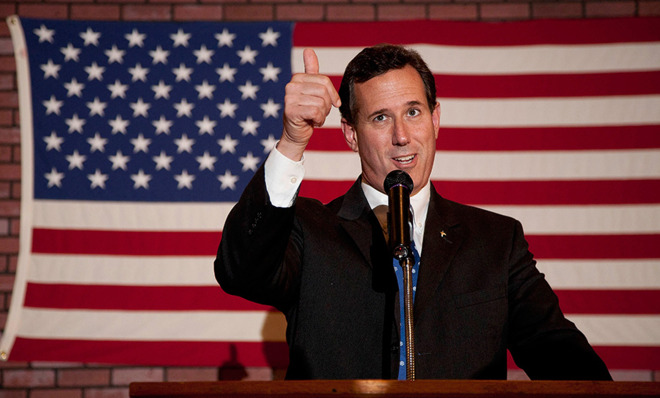Believe it or not, I am not the one irritating anyone this time. Nope, it’s Damon Linker, who is himself a social liberal. But he frustrated his compatriots with a recent article about moral libertarianism. Linker traced the origins of moral libertarianism to Supreme Court Justice Anthony Kennedy claim, in Planned Parenthood v. Casey, that “At the heart of liberty is the right to define one’s own concept of existence, of meaning, of the universe, of the mystery of human life.” As Linker writes:
Justice Antonin Scalia recognized immediately that such a libertarian principle created serious problems for morals legislation of any kind. In his Casey dissent, he pointed out that the principle would seem to make laws against bigamy unconstitutional.
Scalia has been proved right again and again as morality-based laws have fallen beneath the scythe of Kennedy’s moral libertarianism which boils down to one simple precept: if it’s not hurting anyone then it should be legal. Sound familiar? It should. Because it’s becoming the dominant moral-legal view of our entire society, which is Linker’s whole point. And then Linker did the truly unthinkable: he suggested that this brave new future of maximal moral permissiveness might not be 100% good. That’s where he angered his fellow social liberals, and it prompted today’s article: No, I’m not the Rick Santorum of punditry.[ref]Hence the pic above, which comes from this article.[/ref]
To his credit, Linker doesn’t back down.
As social psychologist Jonathan Haidt has shown (and as I’ve written about before), liberals tend to focus on two aspects of moral experience: care for and avoidance of harm toward others, and a concern for egalitarian fairness and hostility to cheating. As for more hierarchical or aspirational moral ideals — loyalty/betrayal, authority/subversion, and sanctity/degradation — those matter much less to liberals. Conservatives, by contrast, express concern about all five moral categories, with religiously oriented conservatives placing special emphasis on striving for moral sanctity or purity.[ref]Haidt has revised his theory to include 6 foundations, but the basic observation is correct.[/ref]
When I write about our moral qualms (or rather, our increasing lack of moral qualms) about homosexuality, polyandry, porn, consensual brother-sister incest, and bestiality, I’m focusing on a dimension of morality that liberals are both relatively uninterested in and often positively uncomfortable with… I sound an awful lot like a conservative… But the suspicion that I’m covertly on the religious right’s payroll goes beyond my mere discussion of such topics… I may strive for a dispassionate tone in my writing about moral trends, but it’s possible to detect a degree of discomfort as well. When I ask what my readers would do if their daughters began to work in porn, or raise the question of whether there are any legal grounds for outlawing consensual brother-sister incest, or wonder if it’s okay for a human being to engage in sexual relations with a horse, I sometimes sound troubled, disturbed, agitated.
Am I?
Yes. And you know what else? I suspect that many liberals are, too, though they’re loathe to admit it in public, and perhaps, in many cases, even to themselves.
It’s great that an outspoken liberal like Linker is willing to point this out. But it’s also sad that he’s one of the very few willing to do so, and will be largely ignored. That’s true despite the fact that, like Linker, I believe that “many liberals” privately share his concerns. But, unlike Linker, they have neither the inclination nor the shield to be willing to speak up about their concerns.[ref]When you write a book like The Theocons: Secular America Under Siege you buy yourself some wiggle room.[/ref] So: good for Linker. But my applause is significantly dampened by the ominously rigid ideological conformity on such an important issue. When everyone knows something is wrong and almost no one is brave enough to say so, you start to see the real power of the New Intolerance.

Distinguishing between whether something is OK vs whether it should be allowed would be useful. I suspect they’re right that most people, liberals included, think acts like incest and bestiality are not OK, meaning that they’re not a good idea. I also suspect that liberals would oppose disallowing such acts legally. It’s one of those odd overlaps between liberals and libertarians where people should be allowed to do stupid things. Perhaps they don’t trust other people to tell them what’s stupid?
I think it’s stupid to eat three big macs a day, and it’s certainly more harmful than doing some of the above examples three times a day, but I don’t think we should ban any of those options. I think that’s the dividing line between the social liberals and social conservatives in this case – conservatives want to disallow what they think isn’t OK, while liberals will just shake their heads and look away.
Bravo. Thanks for posting.
The impulse to use the power of the state to coerce individuals into a preferred behavior is not exclusive to one political party or ideological persuasion. However, centralizing that impulse on a national state is problematic and arrogant, if not dangerous. I’ve always had a soft spot for subsidiarity/federalism for this reason. We can act on these impulses at a state/county/city level without grossly inconveniencing/offending/harming a large number of people, and unite around the more broadly shared ideals in the Bill of Rights.